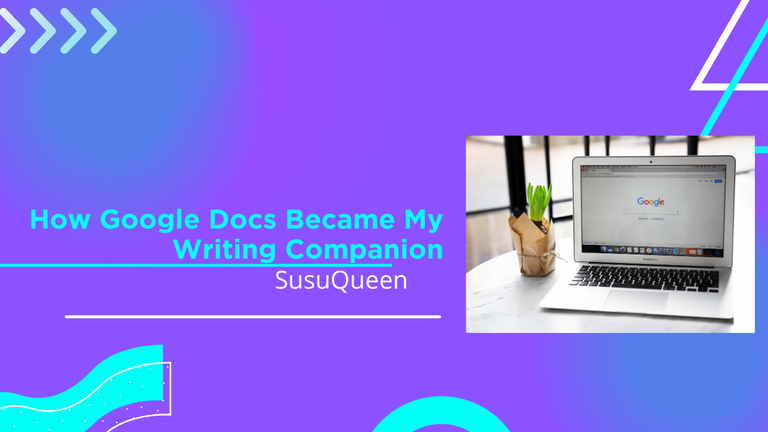Before I fully understood the magic of Google Docs, writing felt like a task that demanded perfect conditions. I either had to be home, with my laptop fully charged and Word installed, or at a cyber café where I prayed the system wouldn’t freeze halfway through a paragraph. If anything interrupted me, I’d have to save my work on a flash drive or email it to myself hoping I wouldn’t lose track of which version was the latest. More than once, I lost a full piece because the file didn’t save properly or my system crashed. Back then, writing felt fragile, like a balloon that could pop at any wrong move.

About two years into my writing journey, a friend noticed me grumbling about one of these incident show I lost a draft and had to start all over again. She looked at me, smiled, and asked, “Why don’t you use Google Docs?” I shrugged. I have, I said, “but it’s just like Word online, right?” She laughed, sat me down, and walked me through it properly.
That conversation shifted something in me.
It was only after her explanation that I began to see the beauty of it. Google Docs wasn’t just another writing app it was a lifeline. For someone like me who works from different places, sometimes borrowing a friend’s laptop or switching between my phone and a desktop, this tool gave me exactly what I had been needing all along: freedom.
Suddenly, I could write anywhere, anytime. If inspiration hit me while I was out, all I needed was my phone and internet access. My email became my gateway to every story, every client piece, every draft I’d ever written. I no longer feared losing work or accidentally closing a document without saving. Google Docs saved automatically. That alone felt like a hug to my anxious writer heart.
One of the first full pieces I wrote entirely on Google Docs was a long-form personal essay for a client. I remember editing that piece late at night with my phone in one hand and my other hand wrapped around a cup of tea. I didn’t have to worry about transferring the document or formatting issues. I could even check back on older edits or leave a comment for myself like, “tighten this line” or “check tone here.” It became more than a tool it was a creative space that moved with me.
Of course, there are other innovations that support me too. Grammarly helps me polish up my grammar and catch small mistakes that sometimes slip past tired eyes. Canva has become my go-to for designing headers or promotional graphics when I need to present something visually appealing. And I’ve dabbled in Notion to organize my writing calendar and brainstorm content ideas. But none of these feels quite as essential, quite as personal, as Google Docs.
There’s a kind of quiet joy in opening a tab and seeing your past drafts waiting for you. Some are raw, messy, half-formed ideas. Others are polished, published, and carrying pieces of your heart out into the world. To me, Google Docs feels like a friend who’s always ready to listen. It has held my frustrations, my breakthroughs, and my healing. Even the drafts I never finished taught me something and they all live there, quietly waiting for the day I might come back.
What I love most is how invisible yet dependable it is. It doesn’t make noise or require much. It just shows up and lets me show up too.
If I ever had the chance to innovate something for the creative community, it would be a distraction-free mobile space that combines the best of all these tools a place where you can write, edit, visualize, and breathe creatively in peace. But until that day comes, I’m more than grateful for what I have now.
Google Docs helped me find rhythm in my writing process. It gave me consistency and the confidence that my words were safe, no matter where I was. And for that, I’ll always consider it one of the most beautiful innovations in my journey.
Note:
This is my personal story, written by me without the help of AI.
Images designed on Canva by me

Posted Using INLEO
